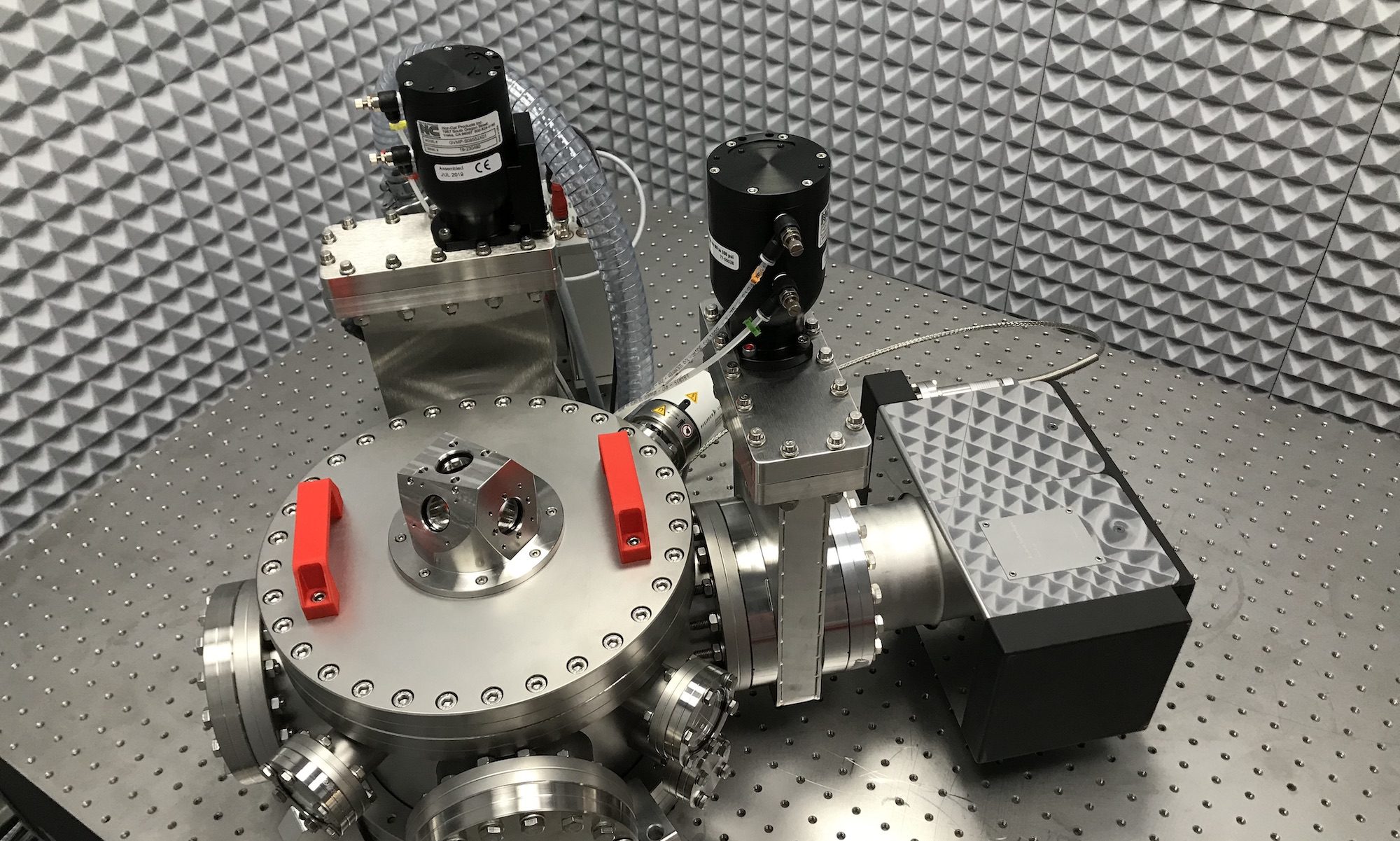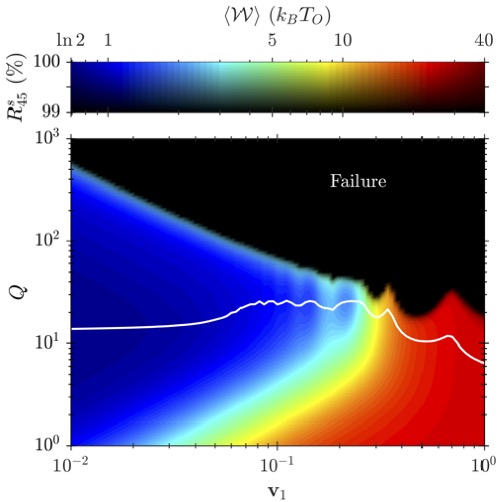Salambô Dago, Sergio Ciliberto, Ludovic Bellon, Adv. Phys. Res. 2023 2300074 (2023)
[Article] doi: 10.1002/apxr.202300074
[Dataset] doi: 10.5281/zenodo.8307734
The reliability of fast repeated erasures is studied experimentally and theoretically in a 1-bit underdamped memory. The bit is encoded by the position of a micro-mechanical oscillator whose motion is confined in a double well potential. To contain the energetic cost of fast erasures, we use a resonator with high quality factor Q: the erasure work W is close to Landauer’s bound, even at high speed. The drawback is the rise of the system’s temperature T due to a weak coupling to the environment. Repeated erasures without letting the memory thermalize between operations result in a continuous warming, potentially leading to a thermal noise overcoming the barrier between the potential wells. In such case, the reset operation can fail to reach the targeted logical state. The reliability is characterized by the success rate Rsi after i successive operations. W, T and Rsi are studied experimentally as a function of the erasure speed. Above a velocity threshold, T soars while Rsi collapses: the reliability of too fast erasures is low. These experimental results are fully justified by two complementary models. We demonstrate that Q≃10 is optimal to contain energetic costs and maintain high reliability standards for repeated erasures at any speed.

